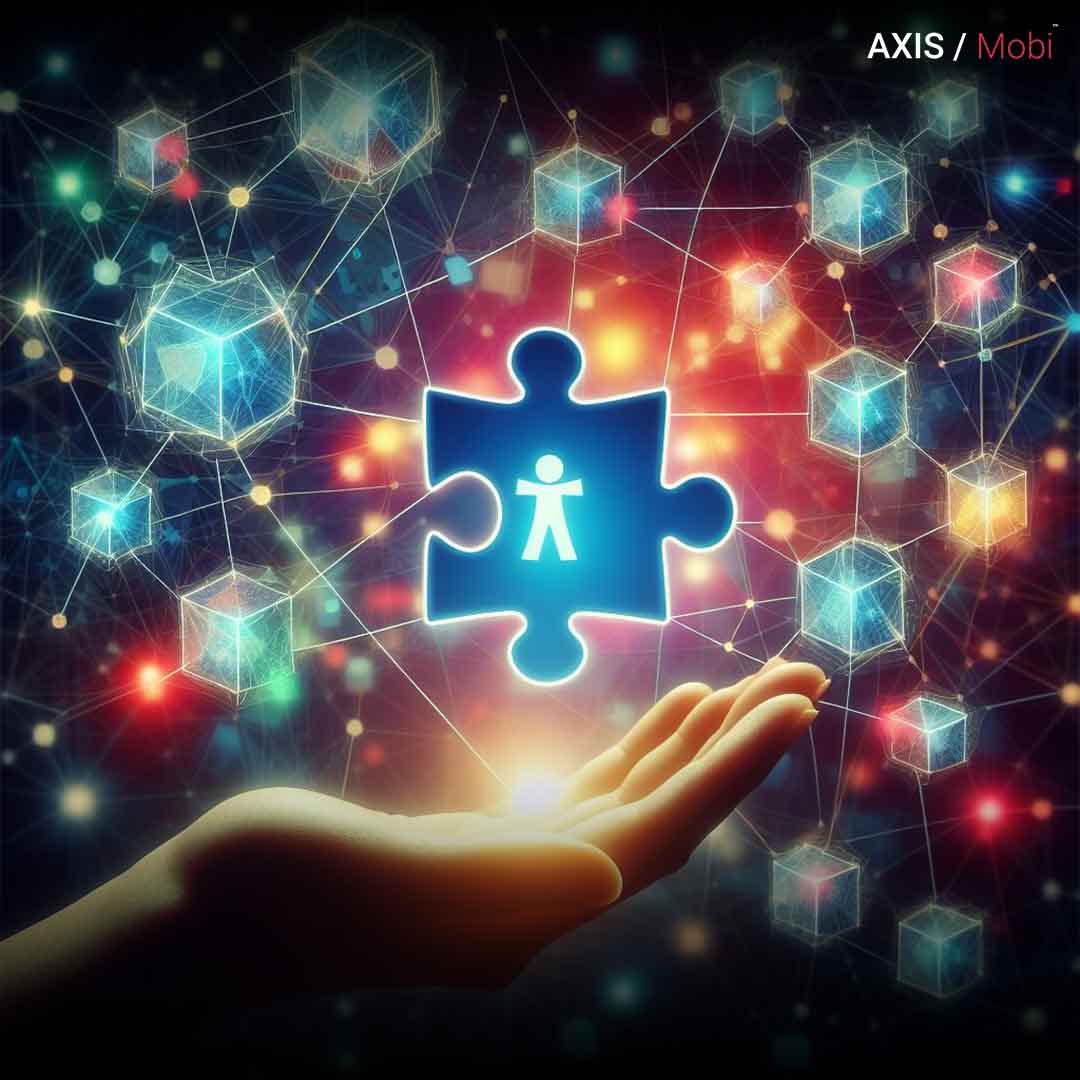The ever-evolving digital marketing landscape constantly welcomes new technologies that reshape how brands interact with their audiences. Among the most compelling trends is the integration of blockchain technology – a secure and decentralized system offering immense potential to revolutionize marketing strategies.
Demystifying Blockchain: The Foundation of Trust

Before diving into its applications, let’s understand blockchain: a digital ledger of transactions recorded across a network of computers called nodes. Each transaction is cryptographically secured and linked to the previous one, forming an unalterable chain. This Technology eliminates the need for a central authority, fostering increased transparency and trust within the network.
Why is Blockchain Relevant to Marketing?

The unique properties of blockchain offer a plethora of opportunities for marketers. Here are some key aspects:
- Enhanced Data Security and Privacy: In an era of rising data breaches and stringent regulations like GDPR, blockchain offers a secure solution for storing and managing customer data. Its immutability and encryption ensure data remains safe and verifiable, empowering consumers with greater control over their information.
- Transparency and Traceability: Building trust is crucial in today’s marketing landscape. Blockchain’s transparent nature allows for tracking products and services throughout their lifecycle, providing consumers with verifiable information about provenance, sustainability, and ethical sourcing practices. This fosters brand transparency and builds trust with customers who value ethical and responsible business practices.
- Improved Advertising Efficiency: The current digital advertising landscape faces challenges like fraud and inefficient targeting. Blockchain can provide a solution by enabling targeted advertising based on actual user engagement and consent, eliminating fraudulent clicks and improving campaign performance. Advertisers can gain valuable insights into campaign effectiveness and optimize their strategies for better returns.
- Empowering Loyalty Programs: Traditional loyalty programs often face issues with data silos and lack of transparency. Blockchain-based loyalty programs offer secure, transparent, and efficient solutions. Customers can easily track their points and redeem rewards across different platforms, fostering more robust engagement and loyalty.
A Growing Trend

The potential of blockchain in marketing is more than just theoretical. The growing adoption and impressive market size showcase its increasing relevance:
- Market Growth: According to Fortune Business Insights, the global blockchain market value will reach $94 billion by 2027. This significant growth signifies the increasing adoption of this Technology across various industries, with marketing being a promising sector.
- Business Adoption: While still in its early stages, 8% of businesses globally already utilize blockchain technology, with some pioneers implementing it in their marketing strategies. This trend highlights blockchain’s growing awareness and potential applications within the business landscape.
- Investment in Technology: $3.1 billion was projected to be spent on Technology and business services supporting blockchain adoption in 2023, according to IDC research. This significant investment indicates a commitment to exploring and harnessing the full potential of blockchain technology, with marketing aiming to leverage its benefits.
Exploring Practical Applications: Putting Theory into Practice

While the full potential of blockchain in marketing is still being investigated, here are some exciting examples of its current applications:
- Decentralized Advertising Platforms: Platforms like Brave Ads and AdEx leverage blockchain to cut out intermediaries, allowing publishers to receive a larger share of ad revenue and giving users greater control over their data. This fosters a more equitable and transparent ecosystem for both publishers and consumers.
- Tokenized Loyalty Programs: Companies like Starbucks are exploring blockchain-based loyalty programs offering customers increased transparency, security, and flexibility. These programs allow customers to track rewards across platforms and trade them for other digital assets.
- Supply Chain Transparency: Brands like Unilever utilize blockchain to track their products’ origin and journey, providing consumers with verifiable information about sustainability and ethical sourcing practices. This enhances transparency throughout the supply chain and empowers consumers to make informed purchasing decisions.
The Road Ahead: Challenges and Opportunities

Despite its potential, blockchain in marketing faces challenges to address:
- Scalability and Infrastructure: Expanding the reach of blockchain-based solutions requires further development of the underlying infrastructure to ensure scalability and efficient processing to handle the demands of large-scale marketing campaigns.
- Regulatory Landscape: The regulatory landscape surrounding blockchain is still evolving, and businesses need to navigate the complexities and stay updated with regulatory developments to ensure compliance




